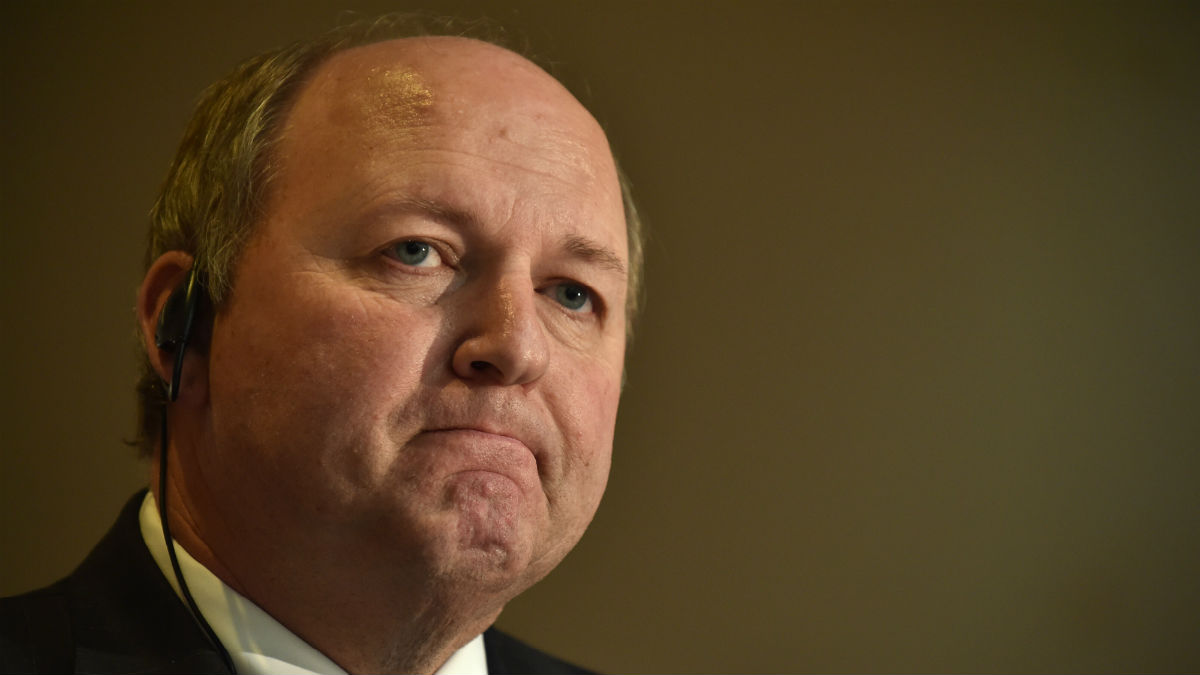Toshiba travails pose another threat to UK's nuclear future
Company is said to be touting for new investment as costs of its accounting scandal bite

A free daily email with the biggest news stories of the day – and the best features from TheWeek.com
You are now subscribed
Your newsletter sign-up was successful
First it was Hinkley Point, now it's Moorside. Another project to add to the UK's new generation of nuclear power plants has apparently hit the rocks.
Sources "with direct knowledge of the matter" told Reuters that Toshiba is asking around among Japanese financial institutions for help to fund the Moorside project, being built near the Sellafield site in west Cumbria. The plant will house three reactors designed by Toshiba subsidiary Westinghouse Electric to produce 3.4 gigawatts of power, slightly more than Hinkley Point in Somerset.
Two years ago the project was estimated to cost around £8bn, the Guardian notes, but this could have doubled since, as the assumed cost of labour and meeting stringent regulations has increased. Reuters says Toshiba's share of the costs would be £2bn, but since its accounting scandal it is now thought to have "become difficult for Toshiba to do this on its own".
The Week
Escape your echo chamber. Get the facts behind the news, plus analysis from multiple perspectives.

Sign up for The Week's Free Newsletters
From our morning news briefing to a weekly Good News Newsletter, get the best of The Week delivered directly to your inbox.
From our morning news briefing to a weekly Good News Newsletter, get the best of The Week delivered directly to your inbox.
The sources said Toshiba "had made requests to Japanese insurers as well as some banks, including Norinchukin Bank, and has hired HSBC as a financial adviser".
Hinkley Point has itself been delayed a number of times, in part because of financing concerns as costs on the project, which is being led by French power company EDF, have spiralled to £18bn. Eventually a deal with Chinese state energy developers in October put the plant back on track and work could begin before the end of the year.
The new nuclear reactors, to come online by 2024, are part of a major energy haul by the government. Energy minister Amber Rudd announced last month that all of Britain's coal-fired power stations would be closed by 2025, but she has faced criticism that she has not adequately replaced this capacity and has reneged on climate commitments.
A free daily email with the biggest news stories of the day – and the best features from TheWeek.com
-
 Film reviews: ‘Send Help’ and ‘Private Life’
Film reviews: ‘Send Help’ and ‘Private Life’Feature An office doormat is stranded alone with her awful boss and a frazzled therapist turns amateur murder investigator
-
 Movies to watch in February
Movies to watch in Februarythe week recommends Time travelers, multiverse hoppers and an Iraqi parable highlight this month’s offerings during the depths of winter
-
 ICE’s facial scanning is the tip of the surveillance iceberg
ICE’s facial scanning is the tip of the surveillance icebergIN THE SPOTLIGHT Federal troops are increasingly turning to high-tech tracking tools that push the boundaries of personal privacy
-
 Labour shortages: the ‘most urgent problem’ facing the UK economy right now
Labour shortages: the ‘most urgent problem’ facing the UK economy right nowSpeed Read Britain is currently in the grip of an ‘employment crisis’
-
 Will the energy war hurt Europe more than Russia?
Will the energy war hurt Europe more than Russia?Speed Read European Commission proposes a total ban on Russian oil
-
 Will Elon Musk manage to take over Twitter?
Will Elon Musk manage to take over Twitter?Speed Read The world’s richest man has launched a hostile takeover bid worth $43bn
-
 Shoppers urged not to buy into dodgy Black Friday deals
Shoppers urged not to buy into dodgy Black Friday dealsSpeed Read Consumer watchdog says better prices can be had on most of the so-called bargain offers
-
 Ryanair: readying for departure from London
Ryanair: readying for departure from LondonSpeed Read Plans to delist Ryanair from the London Stock Exchange could spell ‘another blow’ to the ‘dwindling’ London market
-
 Out of fashion: Asos ‘curse’ has struck again
Out of fashion: Asos ‘curse’ has struck againSpeed Read Share price tumbles following the departure of CEO Nick Beighton
-
 Universal Music’s blockbuster listing: don’t stop me now…
Universal Music’s blockbuster listing: don’t stop me now…Speed Read Investors are betting heavily that the ‘boom in music streaming’, which has transformed Universal’s fortunes, ‘still has a long way to go’
-
 EasyJet/Wizz: battle for air supremacy
EasyJet/Wizz: battle for air supremacySpeed Read ‘Wizz’s cheeky takeover bid will have come as a blow to the corporate ego’